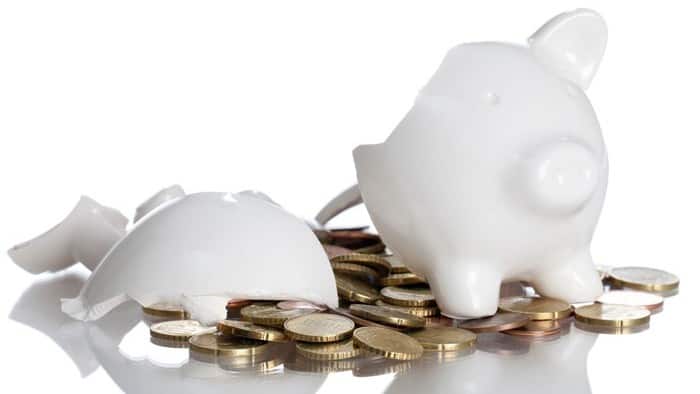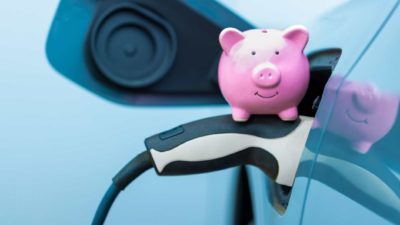This article was originally published on Fool.com. All figures quoted in US dollars unless otherwise stated.
Most people would agree that 2020 has had more than its share of disasters. In fact, thanks to the novel coronavirus, the country is living through both a major public health crisis and a major economic crisis concurrently.
Unfortunately, times of trouble are a fact of life and everyone is bound to experience them sometimes. But, as a recent survey from Ameriprise Financial shows, there's some good news: The majority of investors surveyed (more than 3,000 were surveyed and each had at least $100,000 in financial assets) realise the potential for problems and have taken some steps to prepare for unexpected bumps in the road.
Here are some of the key steps they've taken.
1. Saving for emergencies
Saving for emergencies is, unsurprisingly, the top way people prepare for calamities that life could throw at them. In fact, 64% of survey respondents indicated they had set aside money for emergencies. This is a smart move, both because it can provide you with some peace of mind during these challenging times and because it can help you to protect your long-term financial security.
If you have no emergency fund and you experience a job loss, cuts to your employment hours, or unexpected expenses, you'll likely have only bad options to resolve your financial problems. Borrowing money to cover your surprise costs could saddle you with interest payments, leaving bills unpaid could ruin your credit score and have other dire consequences, and being forced to sell stock or other investments before you're ready could mean locking in losses if you get stuck selling during a market downturn.
Most experts recommend having an emergency fund to cover at least three months of living expenses and ideally closer to six months. With COVID-19 cases spiking nationwide, the country in a recession, and the threat of a stock market crash looming, erring on the side of caution and saving a larger emergency fund is probably best.
2. Preparing for life after death
Preparing for what happens after you die isn't fun, but it's a key part of financial preparedness because most people want to make sure their loved ones are provided for.
As many as 62% of survey respondents indicated they've named their beneficiaries, and the same percentage have purchased life insurance. Thirty-eight percent have also made a formal estate plan, or at least a will, with help from a financial professional.
If you have anyone depending on your income or the services you provide (such as taking care of children or elderly parents) this is a key step toward financial readiness. Most people don't have enough invested for their loved ones to live on if their income stops coming. If you don't but people are counting on you, you need to have plans in place to protect them.
3. Adjusting their lifestyle
Almost four in 10 Americans indicated they've made lifestyle choices to prepare for potential unexpected events in the future.
By cutting back on unnecessary spending and making other smart financial moves, you can use the money to build up the aforementioned emergency fund that will help protect you from the financial pain of unexpected expenses.
Adjusting your lifestyle can also be a smart move to free up more money to invest for your future. If there's another market crash, it may present great buying opportunities. If you have spare cash to purchase shares at a discount, you can maximize your potential returns on investment and set yourself up for more security later in life.
And if any of your investments sustained losses during the last market crash but didn't fully recover in the rally that followed, making lifestyle changes so you can invest more could help you get back on track toward achieving your goals.
4. Making a comprehensive financial plan
Close to a third of Americans worked with a professional to make a comprehensive financial plan in order to be ready for financial disasters.
Having this type of roadmap can ensure you're making the wisest use of your money and investing what you need to build wealth. While many people find they need guidance from a professional to make a long-term financial plan and develop a sound investment strategy, this isn't necessarily the case for everyone. If you take the time to sit down, set your own goals, and determine what you need to achieve them, you'll still be putting yourself in a good position to cope with anything unexpected that comes your way.
Should you take these steps?
Protecting yourself and your loved ones in case of emergency is always important but it may be especially so during these turbulent times with coronavirus cases spiking and a growing number of states locking down again – which could potentially result in a deeper recession.
Making an emergency fund, providing for your family in case of your untimely death, and living within your means are important always, but are especially essential now – so be sure to check these items off your to-do list ASAP.
Christy Bieber has no position in any of the stocks mentioned. The Motley Fool has no position in any of the stocks mentioned. The Motley Fool has a disclosure policy.
This article was originally published on Fool.com. All figures quoted in US dollars unless otherwise stated.









